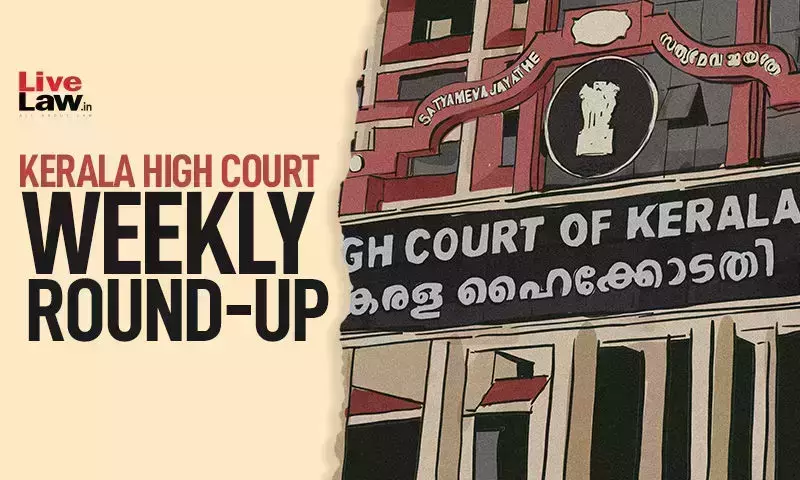Kerala High Court Weekly Round-Up: November 20 – November 26, 2023
Navya Benny
26 Nov 2023 7:13 PM IST

Next Story
26 Nov 2023 7:13 PM IST
Nominal Index [Citations: 2023 LiveLaw (Ker) 666-684] Saheer v. State of Kerala & Connected matter 2023 LiveLaw (Ker) 666P.S. Rajeev v. The Sree Narayana Trusts 2023 LiveLaw (Ker) 667Ramachandran P v State of Kerala 2023 LiveLaw (Ker) 668Malarkodi P v. Union of India 2023 LiveLaw (Ker) 669Santhosh Kumar P M v John M T 2023 LiveLaw (Ker) 670Joy v Mary 2023 LiveLaw (Ker) 671Prathibha v State...
